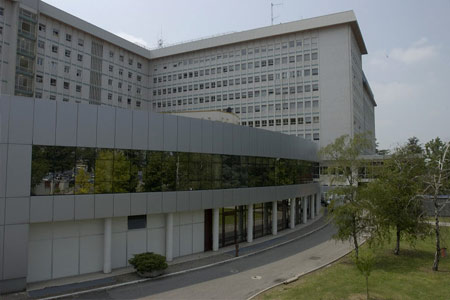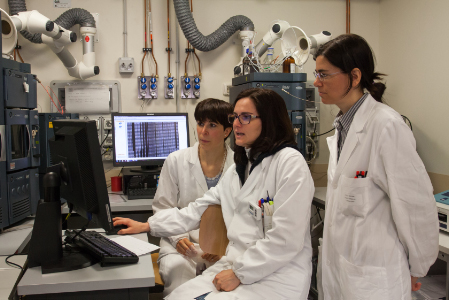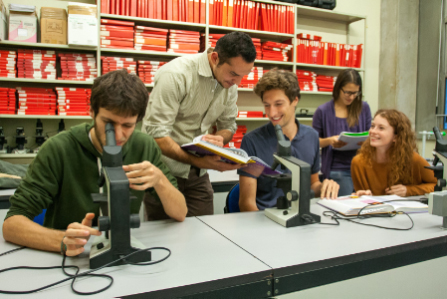This project focuses on the study of molecular mechanisms involved in the interactions among Mycobacterium tuberculosis (MTB), dendritic cells (DC) and natural killer (NK) cells, and in the ensuing activation of effector functions of such cells that are important effector in innate defense and bridge the innate defense to the specific acquired T lymphocyte response important for the resistance to tuberculosis infection.
The project brings together the competences, present in the Dipartimento di Patologia of the University of Verona, of a (1) clinic unit belonging to the section of Infectivology, responsible for for the diagnosis and therapy of tuberculosis, collecting all the cases of tuberculosis of the province of Verona, (2) a unit belonging to the section of Immunology, that has long been studying proinflammatory cytokines and interactions between innate and acquired immunity and (3) a unit belonging to the section of General Pathology, historically known for the studies on inflammation and oxygen free radicals. These three units will tightly collaborate with a unit of the Dipartimento di Patologia Sperimentale, Biotecnologie Mediche, Infettivologia ed Epidemiologia of the University of Pisa, internationally known for a long and productive experience in the biology of MTB.
The project, that will study cells derived from healthy donors and subjects with latent or active tuberculosis infection belonging to natives or to recent immigrants, proposes to identify new stategies for the control of the infection (use of cytokines or patogen-associated molecular patterns (PAMPs) that might synergize with MTB in the functions of DC or of NK cells, or modulate ROI production). The unit of the University of Pisa will contribute to the project with the wide kwnoledge of MTB and of its live attenuated strain BCG, and will allow the use of inactivated or live bacteria and of components purified from them.
Major issues that will be addressed include: i) synergistic interactions among components of MTB and PAMPs in the functional activity of different populations of DC, ii) role of oxygen free radicals produced by DC in the defense against MTB infection; iii) mechanisms of activation of effector functions of NK cells in the innate response to MTB.







